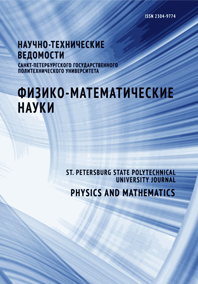Development of an algorithm for predicting the strength of laser reconstruction of biological tissue
Laser reconstruction of biological tissue is a fast and minimally invasive method of wound closure without the risk of stenosis, foreign body reaction or inflammation. However, the strength of the welds is inferior to the traditional suture method in the first few days after surgery. This limitation can be overcome by optimizing the laser beam and solder component composition using machine learning methods. The aim of the study was to develop and experimentally verify an algorithm for predicting the strength of laser reconstruction of biological tissues. The best prediction models were based on an extreme gradient boosting algorithm and random forest. To train the algorithms, a dataset consisting of experiments described in published research papers was used. The dataset contains a total of 394 samples and 39 features on which training was performed. The effectiveness of the model was tested experimentally in two stages. Bovine ex vivo vascular repair was the first step. The second stage was in vivo testing of the algorithm on laboratory animals. The average percentage error of the strength prediction was 19%. This error is due to the large scatter in the strength values obtained experimentally. The strength obtained is sufficient to analyses the laser radiation characteristics and the component composition of the solder prior to laser reconstruction.


